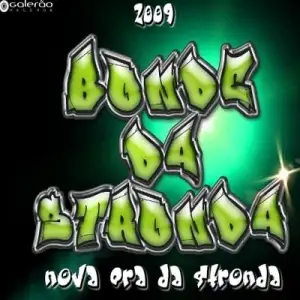Latin hip hop is hip hop music that is recorded by artists in the United States of Hispanic and Latino descent, along with Spanish-speaking countries in the Caribbean, North America, Central America, South America, and Spain.

Samba is a name or prefix used for several rhythmic variants, such as samba urbano carioca, samba de roda, amongst many other forms of samba, mostly originated in the Rio de Janeiro and Bahia states. Samba is a broad term for many of the rhythms that compose the better known Brazilian music genres that originated in the Afro-Brazilian communities of Bahia in the late 19th century and early 20th century, having continued its development on the communities of Rio de Janeiro in the early 20th century. Having its roots in the Afro-Brazilian Candomblé, as well as other Afro-Brazilian and Indigenous folk traditions, such as the traditional Samba de Caboclo, it is considered one of the most important cultural phenomena in Brazil and one of the country's symbols. Present in the Portuguese language at least since the 19th century, the word "samba" was originally used to designate a "popular dance". Over time, its meaning has been extended to a "batuque-like circle dance", a dance style, and also to a "music genre". This process of establishing itself as a musical genre began in the 1910s and it had its inaugural landmark in the song "Pelo Telefone", launched in 1917. Despite being identified by its creators, the public, and the Brazilian music industry as "samba", this pioneering style was much more connected from the rhythmic and instrumental point of view to maxixe than to samba itself.

The music of Brazil encompasses various regional musical styles influenced by European, American, African and Amerindian forms. Brazilian music developed some unique and original styles such as forró, repente, coco de roda, axé, sertanejo, samba, bossa nova, MPB, gaucho music, pagode, tropicália, choro, maracatu, embolada, frevo, brega, modinha and Brazilian versions of foreign musical styles, such as rock, pop music, soul, hip-hop, disco music, country music, ambient, industrial and psychedelic music, rap, classical music, fado, and gospel.
Brazilian hip hop is a national music genre in Brazil. From its earliest days in the African-Brazilian communities of São Paulo and Rio de Janeiro, the genre has grown into a countrywide phenomena. Rappers, DJs, break dancers and graffiti artists are active across the complete spectrum of society blending Brazil's cultural heritage with American hip hop to form a contemporary musical fusion.
Funk carioca, also known as favela funk, in other parts of the world as baile funk and Brazilian funk, or even simply funk, is a Brazilian hip hop-influenced music genre from Rio de Janeiro, taking influences from musical styles such as Miami bass and freestyle.

João Eduardo de Salles Nobre, known as Dudu Nobre, is a Brazilian composer and singer.
Alternative reggaeton is a subgenre of reggaeton that emerged from the reggaeton movement as a reaction to its repetitive and monotone dembow rhythm, and the predominant stereotypical gangsta content that became predictable. The result was a complex sound derived from world sounds, mainly rooted in other Latin American music based genres such as bomba, plena, salsa, bachata, merengue, cumbia, tango and other foreign influenced music such as alternative rock, rock en español and Latin alternative. Mixed with thoughtful lyricism guided by an anti-colonialism discourse, Latin American sociopolitical content, and racial pride, it gave listeners a smooth blend of danceable rhythms and intellectual dialogue.

Nova Era da Stronda is the first studio album of the carioca group Bonde da Stronda released on August 9, 2009 by the label "Galerão Records". Already containing some of the old hits of the duo as "Nossa Quimica", "XXT" among others. On April 11, 2010 they released the video clip for the song "Playsson Raiz". Later, on September 18, 2010 they released a video clip for the song "Mansão Thug Stronda", and currently spends more than 35 million hits on YouTube.
Bonde da Stronda was a Brazilian hip hop group formed in 2006 in Rio de Janeiro, Brazil, by brazilian singers Mr. Thug and Léo Stronda. The group has recorded four studio albums and one independent album.

Leonardo Schulz Cardoso, also known as Leo Stronda, is a Brazilian bodybuilder, YouTuber and former rapper. He was vocalist and one of the founders of the hip-hop duo Bonde da Stronda. He is also known for his clothing line, XXT Corporation. Stronda had a channel in Brazil about bodybuilding named "Fábrica de Monstros", with more than 2,5 million subscribers, which he lost due to contract problems. His new channel is called simply "Leo Stronda" and it currently has around 3 million subscribers.

Diego Villanueva, better known by his stage name Diego Thug, is a Brazilian singer-songwriter. He is the lead singer and co-founder of the group Bonde da Stronda.

A Profecia is the second studio album by hip hop group Bonde da Stronda released in 2011 by the label "Galerão Records" and distributed by Radar Records. Were released as singles tracks "A Profecia", "Tudo pra mim" and "O Bagulho é muito Louco" in order to promote the album. The release date for the CD has been rescheduled several times until then be released on 2 December 2011.
Prexeca Bangers is a Brazilian hip hop group formed in 2004 in Rio de Janeiro, Brazil, by the MC's Rodrigo "Fox" Raposo and Vitor "Mãe" Castro. In 2011 Prexeca Bangers released his first music video for the single "Tem muleh" to promote his album "Strondando a Porra Toda" which was released shortly after.

Corporação is the third studio album of the band Bonde da Stronda, released on 4 July 2012 by the label Galerão Records.

O Lado Certo da Vida Certa is the fifth studio album by Brazilian hip-hop group Bonde da Stronda. Production for the album took place following the release of their mixtape, Feito pras Damas in early 2013. The album was released on September 30, 2013.

Funk ostentação is a Brazilian music style created in São Paulo in 2008. Strongly influenced by American hip-hop, the central theme addressed in the songs is conspicuous consumption, and many funk ostentação artists sing about cars, motorcycles, drink, women, and ambitions to leave the favela and achieve life goals.

Karoline dos Santos Oliveira, known professionally as Karol Conká, is a Brazilian singer-songwriter. Her music is a blend of modern hip-hop and rap with sounds from Brazilian pop and traditional music.
EDM trap is a fusion genre of hip hop, rave music and EDM, that originated in the early 2010s on peaking popularity of big room house and hip hop trap genres. It blends elements of hip hop trap, which is an offshoot of Southern hip hop, with elements of EDM like build-ups, drops, dense production with rave music synthesizers, and breakdowns. As it was popularized, it increasingly began incorporating more pop elements.
Phonk is a subgenre of hip hop and trap music directly inspired by 1990s Memphis rap. The style is characterized by vocals from old Memphis rap tapes and samples from early 1990s hip hop, especially cowbell samples resembling that of the Roland TR-808 drum machine. The genre draws from the dark, distortive techniques of the chopped and screwed sound.










